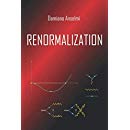Cosmic virtuality
We study the impact of the expansion of the universe on a broad class of objects, including black holes, neutron stars, white dwarfs, and others. Using metrics that incorporate primordial inhomogeneities, the effects of a hypothetical “center of the universe” on inflation are calculated. Dynamic coordinates for black holes that account for expansions or contractions with arbitrary rates are provided. We consider the possibility that the universe may be bound to evolve into an ultimate state of “total dilution”, wherein stable particles are so widely separated that physical communication among them will be impossible for eternity. This is also a scenario of “cosmic virtuality”, as no wave-function collapse would occur again. We provide classical models evolving this way, based on the Majumdar-Papapetrou geometries. More realistic configurations, instead, indicate that gravitational forces locally counteract expansion, except in the universe’s early stages. We comment on whether quantum phenomena may dictate that total dilution is indeed the cosmos’ ultimate destiny.
Symmetry 2024, 16(11), 1412 | DOI: 10.3390/sym16111412

 Quantum Gravity
Quantum Gravity 


